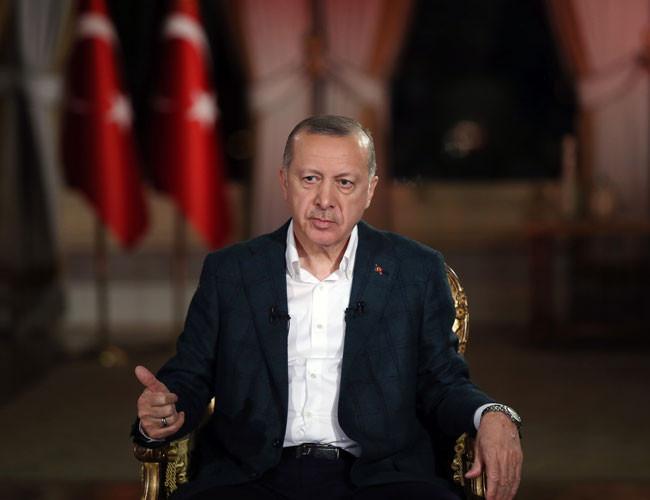
President Recep Tayyip Erdoğan said Turkey and Syria have been conducting foreign policy in low profile contacts through its spy agency with the Syrian regime.
Turkey and Syria “conducts foreign policy on low levels,” Erdoğan said in an interview with public broadcaster TRT late Feb. 3.
Intelligence agencies cannot act in the same way that political leaders do, he said in another reference to contacts between the intelligence agencies of the Syrian regime and Turkey.
“Even if it’s your enemy, you will not break the rope completely. Because you might need that rope some time,” Erdoğan added.
Turkey so far has ruled out any direct talks with Syrian leader Bashar al-Assad, and Foreign Minister Mevlüt Cavuşoğlu told Hürryiet Daily News last week that Ankara was earlier only in contact with Damascus through third parties, namely Russia and Iran. Erdoğan’s comments are the first time he has confirmed direct low-level talks with Damascus.
Ankara previously had dispatched diplomatic notes, such as to protest the downing of a Turkish jet by Syria in 2012 and to inform Damascus that the Tomb of Süleyman Şah was being temporarily moved to a new site in Syria, to Syria’s consulate in Istanbul. The Syrian embassy in Ankara is closed, but its consulate in Istanbul is still functioning. The last political visit from Ankara to Damascus was paid by former Foreign Minister Ahmet Davutoğlu in 2011.
Asked about the U.S. withdrawal plan, the president said he hoped Washington would pull its troops out of Syria soon.
If not, he warned, Ankara would take action to avert the possible terror threat posed by the U.S.-backed YPG. “I hope [the U.S] will complete [the pullout] in a short period of time because we do not want to live under threat,” Erdoğan said. “Whenever we see any sign of a threat, we will do whatever is needed,” he said.
Security zone from Jarablus to Iraqi border
The Turkish government welcomed a surprise announcement in December by U.S. President Donald Trump that he was pulling out some 2,000 American troops from the war-torn country.
He showed the negotiated “security zone” on the map, during a live broadcast, which he said would stretch from Jarablus in northern Syria to the Iraqi border.
And he urged the U.S., a NATO ally, to hand over the zone’s security to Turkish troops.
Turkey is ready to run the “security zone” together with the U.S., he said but “we cannot leave it to coalition forces because we need to feel safe.” “We cannot trust coalition forces... they have neither troops to ensure security there nor logistical means,” the president said.
The Turkish army has launched two major operations in Syria in 2016 and in 2018 to combat the YPG and ISIL. The deployment of Turkish troops and their proxy forces in areas of northwestern Syria has drawn accusations by some critics of a Turkish military operation.
Erdoğan, who visited Russia for talks over the “security zone” last month, also said he would meet President Vladimir Putin in Sochi on Feb. 14.
Wading into the murder of Saudi journalist Jamal Khashoggi, who was killed by a Saudi hit team in the kingdom’s Istanbul consulate, last year, the president accused the United States of “silence.”
“I cannot understand America’s silence.... We want everything to be clarified because there is an atrocity, there is a murder,” he said. “The Khashoggi murder is not an ordinary one.”